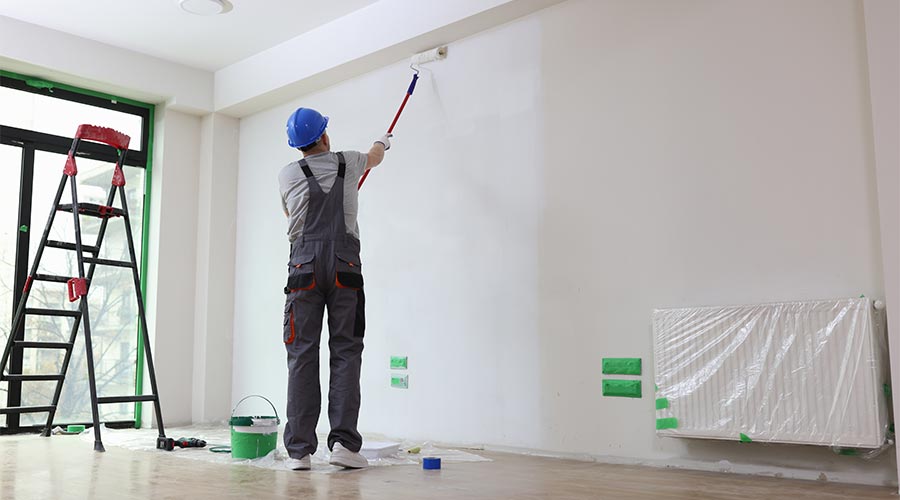Potential Problems When Finding a Painting Contractor
The process of finding a painting contractor and discussing the specifics of a particular project is fraught with potential problems, from schedules and materials to communication
and expectations.
Contractors point to several issues that tend to pose particular problems in such cases, including the process of selecting the specific paints and coatings to be used.
Products "are constantly changing, and they can change from one job to the next job," Ayala says. "I'm very much in contact with my reps, and a lot of times if I have a concern, I'll ask them to come and look at the substrate. They see all of the latest information on their products. Then I can address the issue better for the customer. This is especially true when dealing with places that are looking for long-term life (from their facilities), and they normally don't have a lot of money, so a couple of suggestions might go a long way in extending their dollar."
Paints and coatings, however, are just one item on the list of issues contractors say can imperil a project, and they stress that pre-project discussions can give them essential information.
"What I normally ask is, 'How long do you plan to use this (facility) in its current condition?'," Ayala says. "That has a lot do with how I look at the job. If they tell me, 'I'm trying to clean it up to sell it', that's one approach.
"If they tell me, 'We're staying here. I don't want to paint this again for another five or ten years', that's another approach. If they tell me, 'We're planning to maintain it after we repaint it', that gives me yet another way of looking at it.
"Usually, we'll also ask how long it's been since any work was done here. Do you have any lead issues or things of that nature? We have to ask these questions to be able to determine what's best for them."
Adkins suggests that managers also pay close attention to the warranties that contractors offer for their work.
"When you're getting a job done, look at who's giving you the best warranty for labor and materials," she says. "A lot of these contractors don't (offer a warranty), but I do. I give them a written warranty. If it's a five-year coating, I give them five years, and I have my paint supplier write a warranty saying that their product is guaranteed for five years. That means a lot because it saves them a lot of money in the long run."
Logistical issues also can create problems for contractors' crews who are trying to access the facilities to complete an application project. For example, consider site preparations, including landscaping and other work site issues.
"All of that has to be taken care of before contractors can get in there and start their work," Adkins says. "Clear the parking lot. If you're doing the outside of a dorm or a commercial building, that parking lot has got to be cleared and marked off. Those kinds of issues slow jobs down. They need to take care of the overgrowth because that destroys the coating on the building. That is a huge issue. A lot of these colleges still have
a lot of ivy growing, and it will get
into the mortar and pull it right off of the building."
Related Topics:













